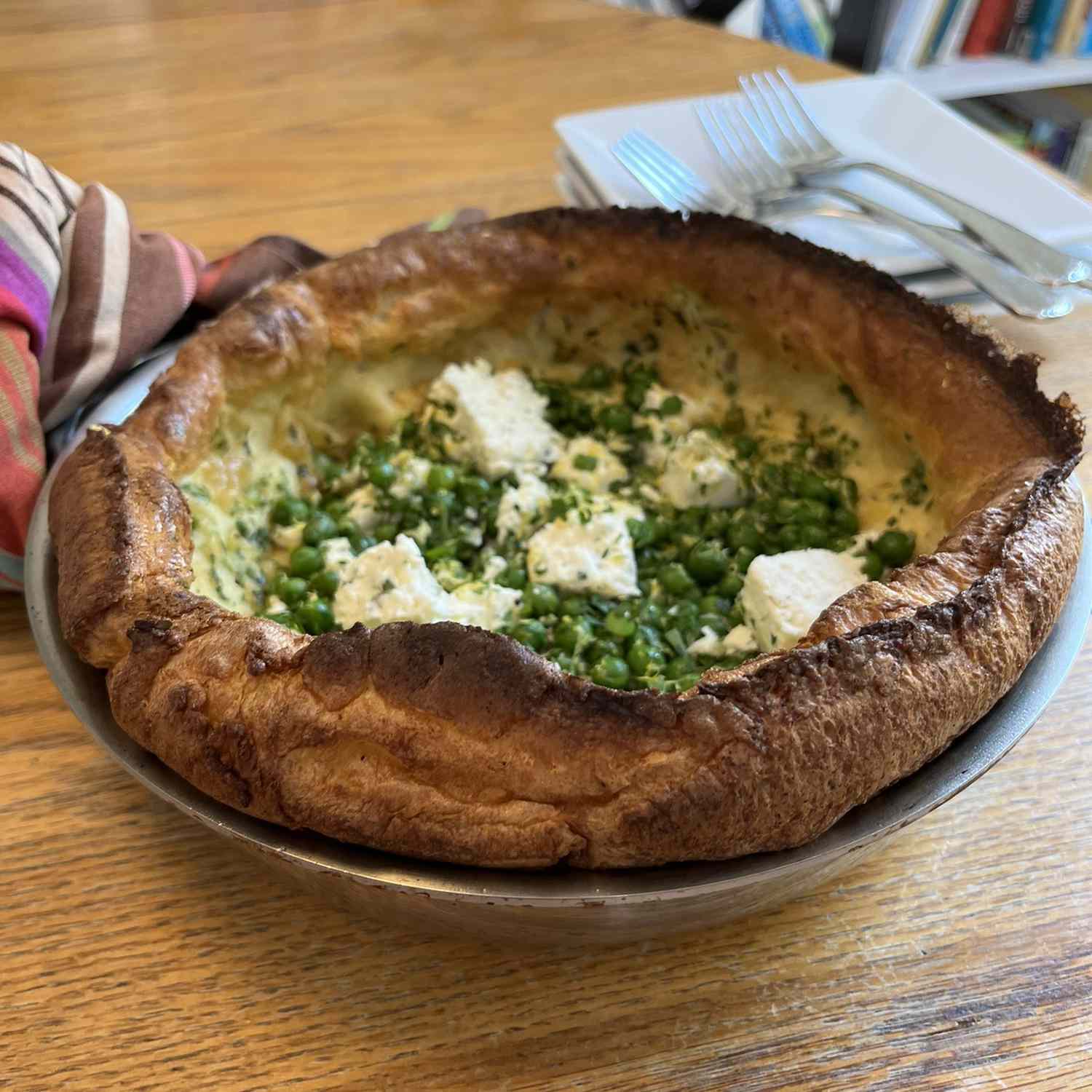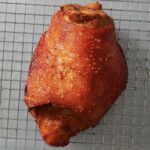The most underrated brunch dish, in my opinion, is the Dutch baby.
The History of the Dutch Baby
Also known as a German pancake, the term Dutch baby was trademarked by the owner of Seattle restaurant, Manca’s, in 1942. This breakfast classic was so named from the misinterpretation of the appellation “Deutsch” (meaning German) and “baby” from the mini pancakes they also sold.
What is a Dutch Baby?
Unlike American pancakes, Dutch babies are more like a cross between a soufflé and Yorkshire pudding. The batter is baked in a buttered cast-iron skillet yielding a fluffy and billowy, yet lightly crispy pancake.
The majority of Dutch babies are served sweet topped with things like fruit, sugar, or cream. Here I make a savory Dutch baby with one of my favorite cheeses, Boursin (garlic and herb flavor is my favorite but really any of them would work), and buttery, herby English peas.
What to Serve with This Dutch Baby
Pair your savory Dutch baby with the perfect brunch mimosa and make some other essential brunch recipes to go with it.
Recipe Tips
- If you don’t have a cast-iron pan you can use any skillet that is safe to put in the oven, but it may not puff or come out as nice.
- If you don’t have a blender you can whisk everything together by hand.
Make Ahead
The batter can be made up to 3 days in advance and stored in an airtight container or jar in the fridge. Remove the batter from the fridge at least 30 minutes before using it to bring it to room temperature, and give it a little whisk before using.
“A savory Dutch Baby is a great idea for brunch or for lunch with a side salad. The topping combination of English peas and Boursin cheese is perfect. This recipe is a terrific blueprint for other possibilities. I could see trying this with diced ham, bacon, asparagus, or smoked salmon. So many toppings would work well here.” —Joan Velush
A Note From Our Recipe Tester
Ingredients
For the Pancake
-
3 large eggs
-
3/4 cup whole milk
-
2/3 cup (80 grams) all-purpose flour
-
2 tablespoons unsalted butter, melted
-
1/2 teaspoon fine salt
-
1/2 teaspoon ground black pepper
-
2 tablespoons unsalted butter
-
2 teaspoons finely chopped fresh Italian parsley
-
2 teaspoons finely chopped scallions
For the Peas
-
1 tablespoon unsalted butter
-
1 tablespoon extra-virgin olive oil
-
1 cup fresh English peas
-
2 cloves garlic, minced
-
1 1/2 tablespoons finely chopped scallions
-
1/2 cup water
-
1 1/2 tablespoons finely chopped fresh Italian parsley
-
1/4 teaspoon fine salt
-
1/2 teaspoon ground black pepper
-
Finely grated zest of 1 lemon
To Finish
-
1 puck (5.2 ounces) Boursin cheese
-
1 tablespoon finely chopped fresh Italian parsley, optional
-
Pea shoots, optional
Steps to Make It
Make the Dutch Baby
-
Gather the ingredients. Preheat the oven to 450 F and place a 9-inch cast-iron skillet in the oven to heat.
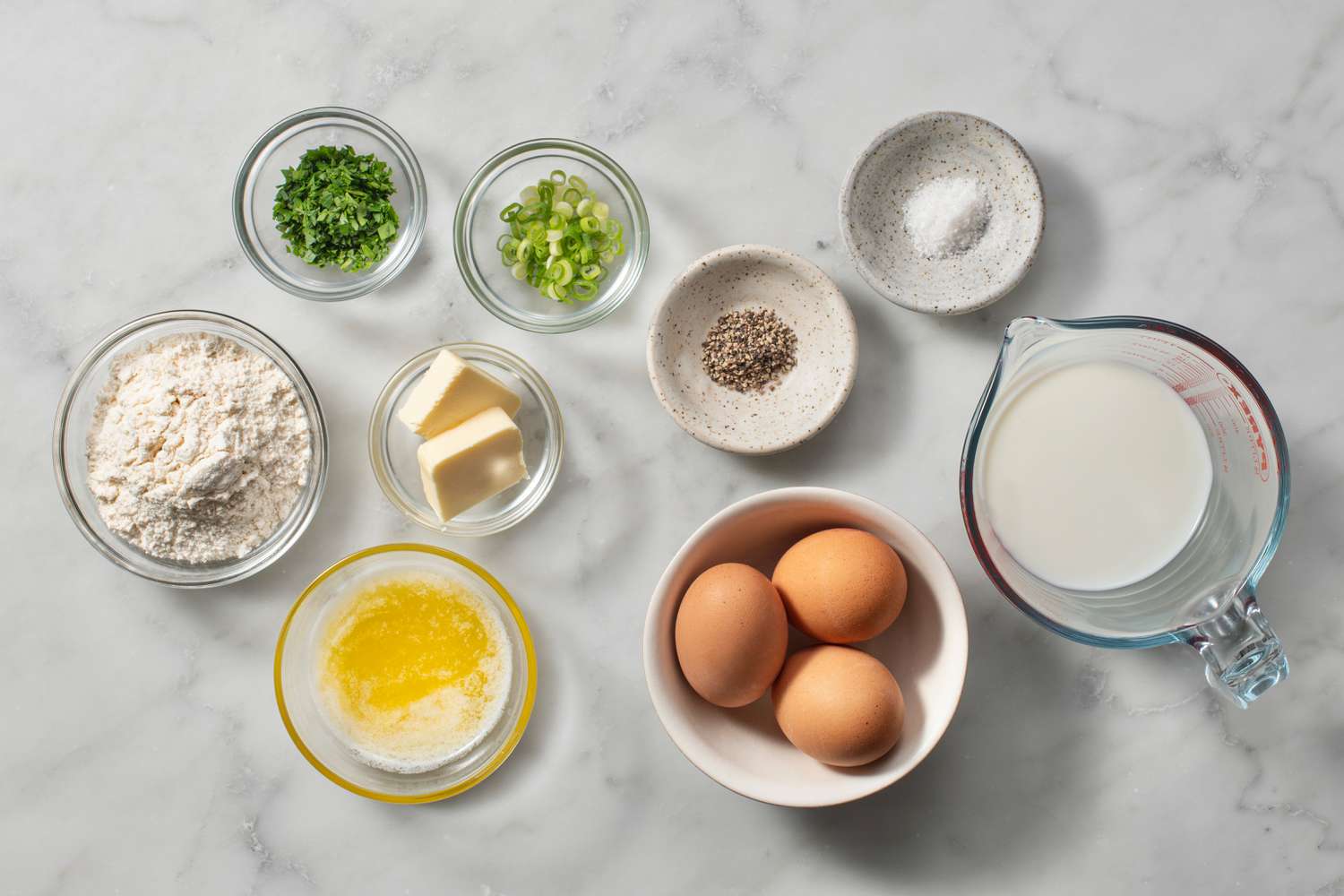
The Spruce Eats / Diana Chistruga
-
Combine the eggs, milk, flour, melted butter, salt, and pepper in a blender and blend until smooth.
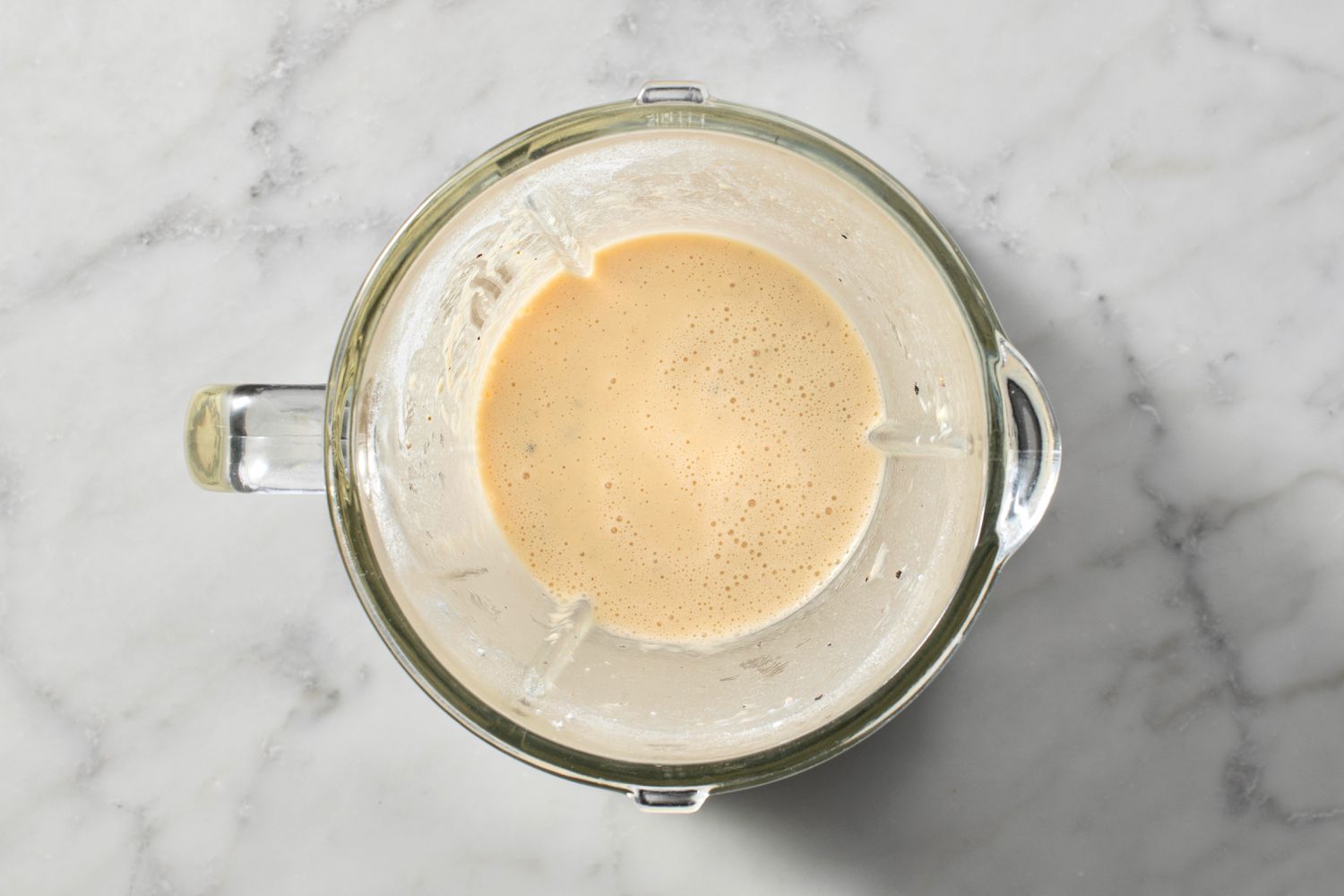
The Spruce Eats / Diana Chistruga
-
When the oven is ready, carefully remove the cast iron skillet and add the remaining 2 tablespoons butter, swirling to coat the bottom.
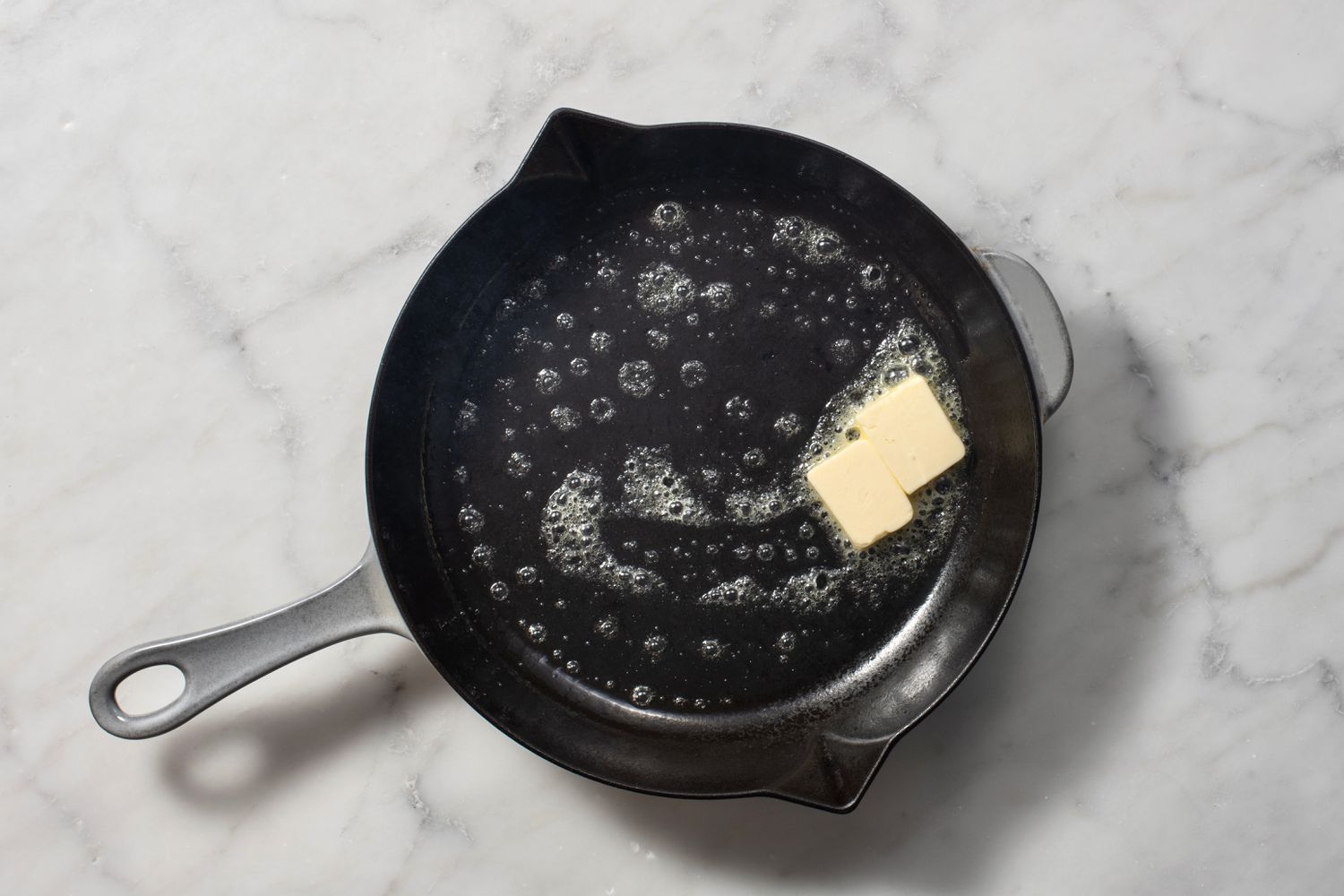
The Spruce Eats / Diana Chistruga
-
Quickly pour in the batter and sprinkle the finely chopped parsley and scallions on top. Place it in the oven to cook for 20 to 25 minutes until puffed and lightly browned around the edges.
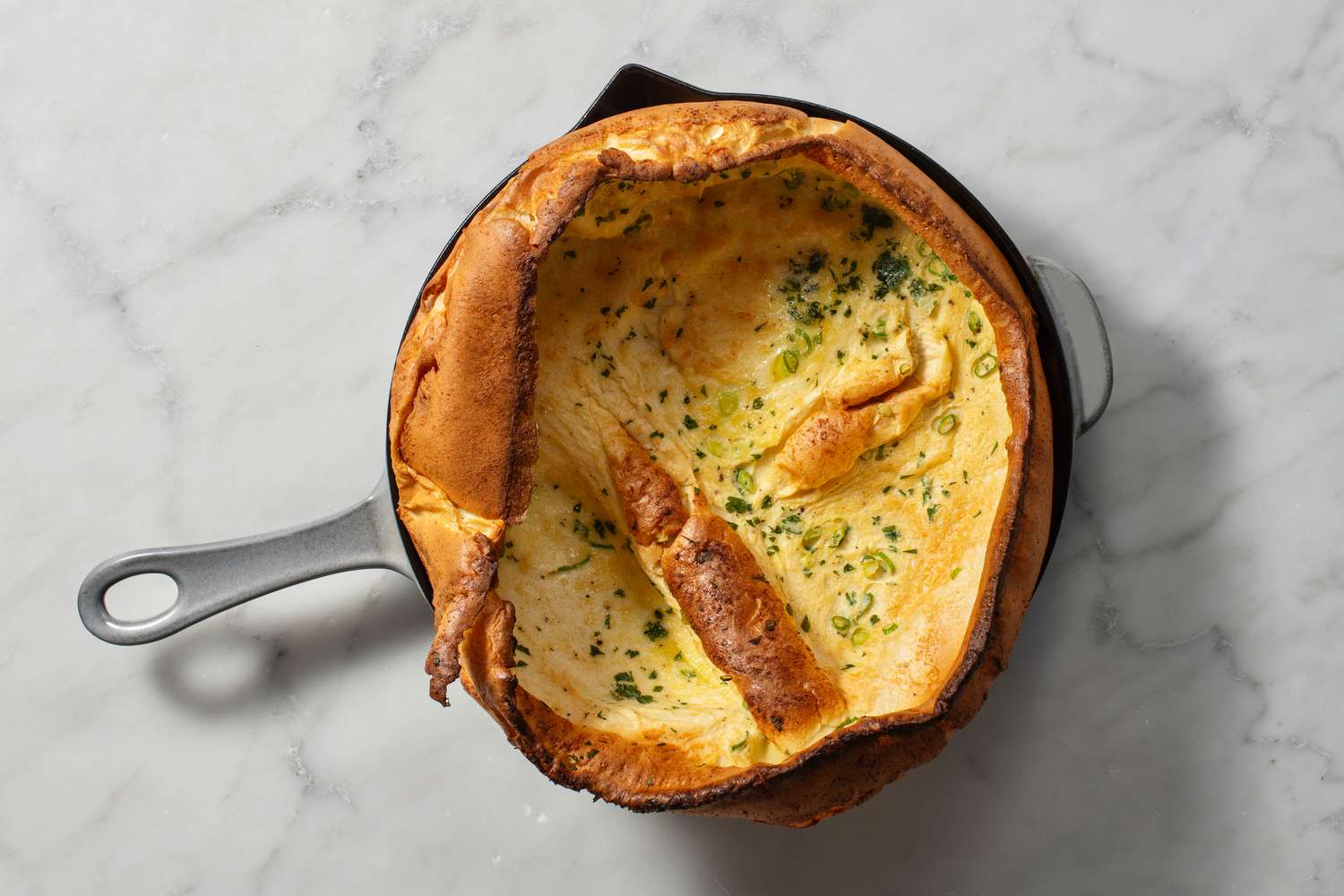
The Spruce Eats / Diana Chistruga
Cook the Peas
-
Gather the ingredients.
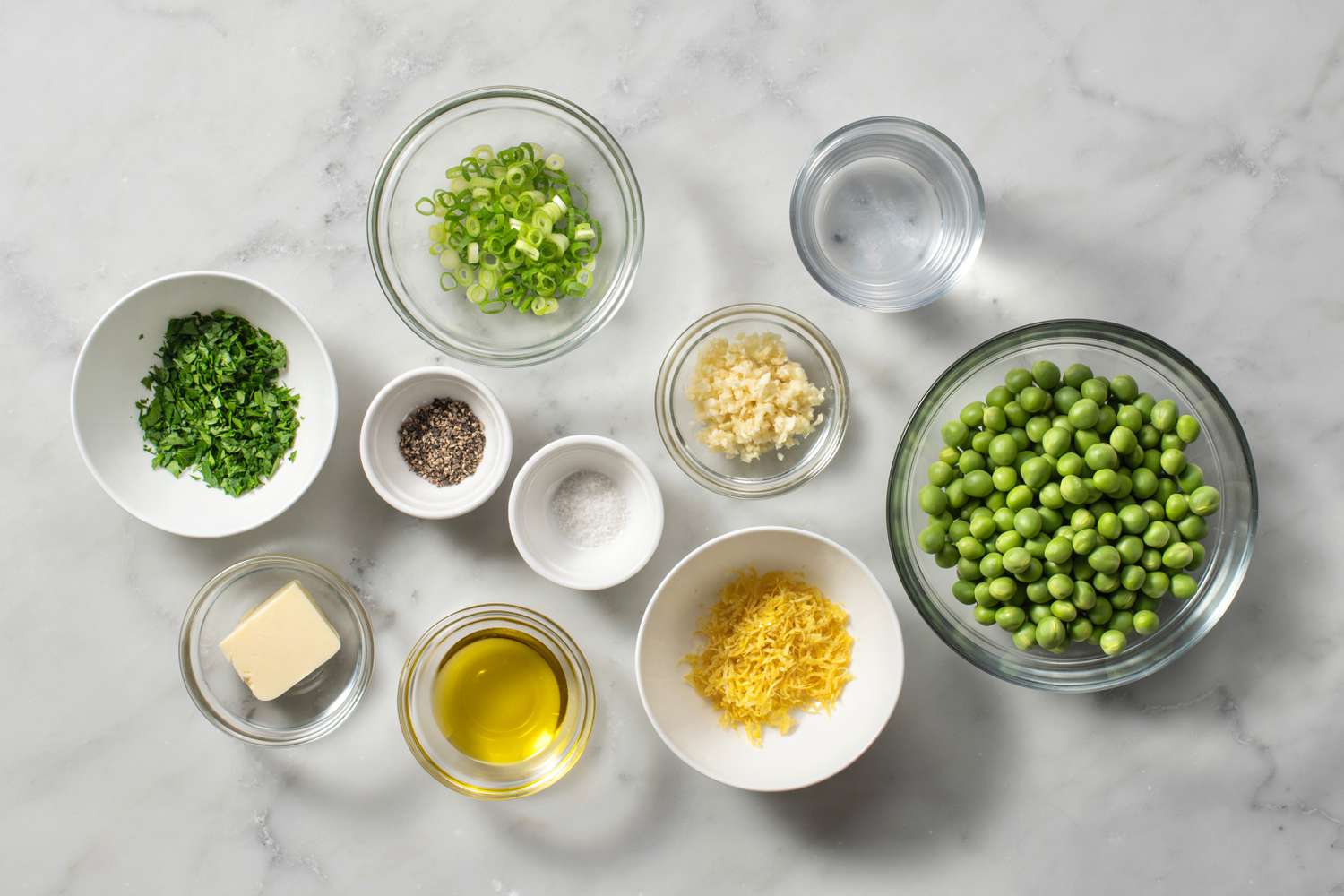
The Spruce Eats / Diana Chistruga
-
While the Dutch baby bakes, cook the peas. Melt the butter and olive oil in a skillet over medium high heat and add the peas, garlic, and scallions. Sauté, stirring occasionally for 1 to 2 minutes, until the garlic is fragrant but not at all brown.
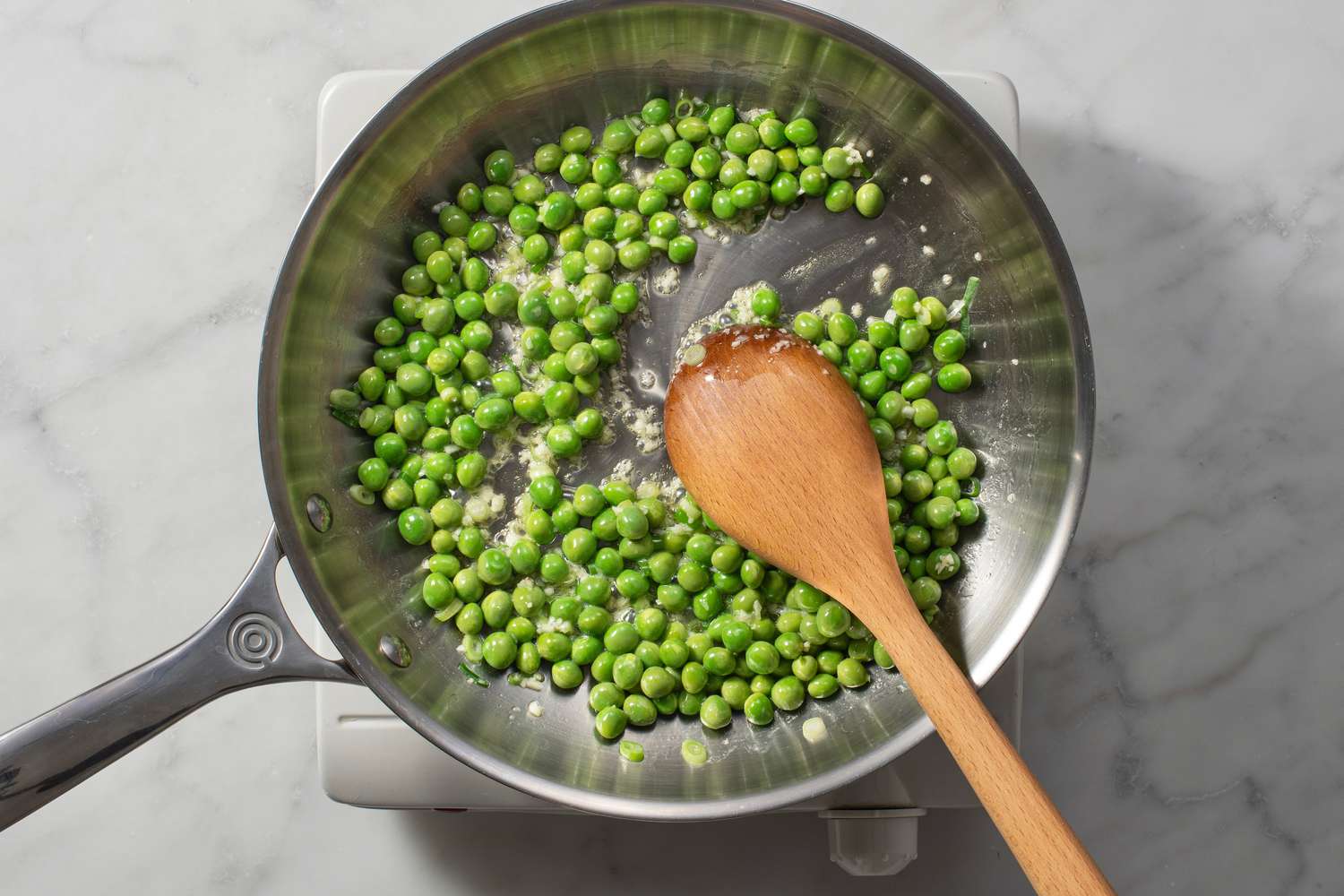
The Spruce Eats / Diana Chistruga
-
Add just enough water to barely cover the peas, about 1/2 cup, and continue to cook until the peas are tender and the water has evaporated, about 5 minutes.
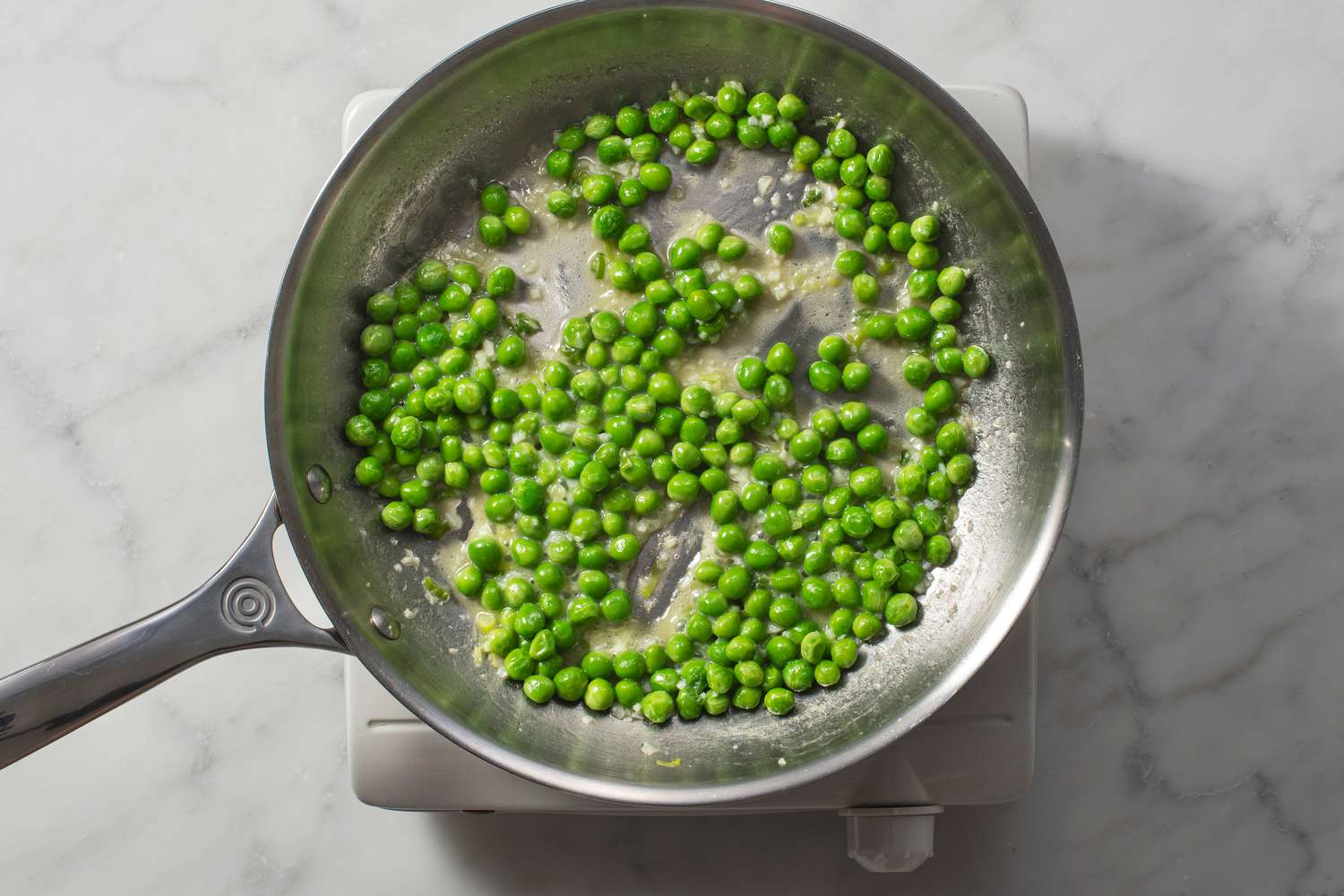
The Spruce Eats / Diana Chistruga
-
Add the parsley, salt, pepper, and lemon zest and stir to combine. Set the peas aside until the pancake is done.
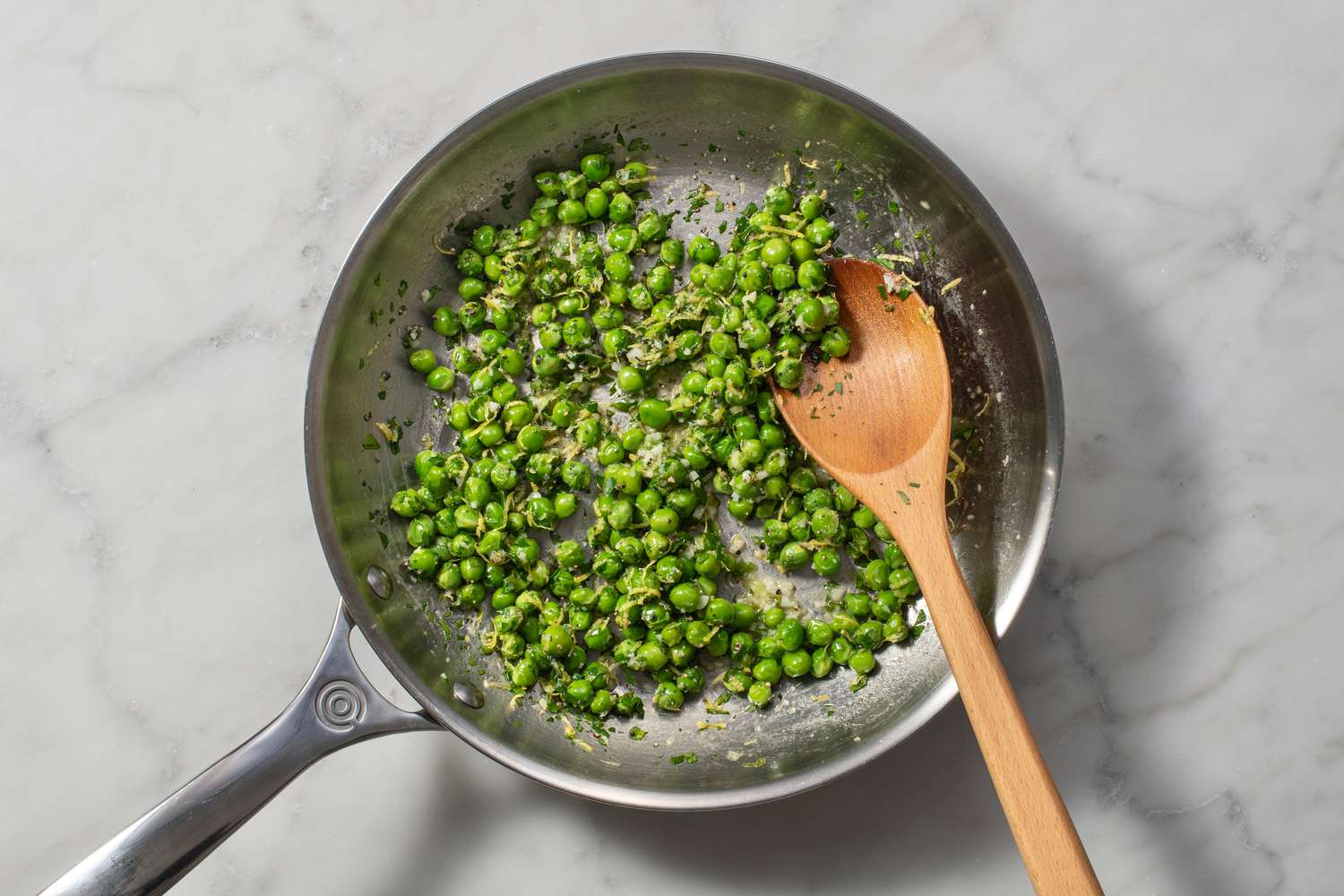
The Spruce Eats / Diana Chistruga
Garnish and Serve
-
Remove the Dutch baby from the oven and top with heaping spoonfuls of Boursin cheese and the cooked peas.
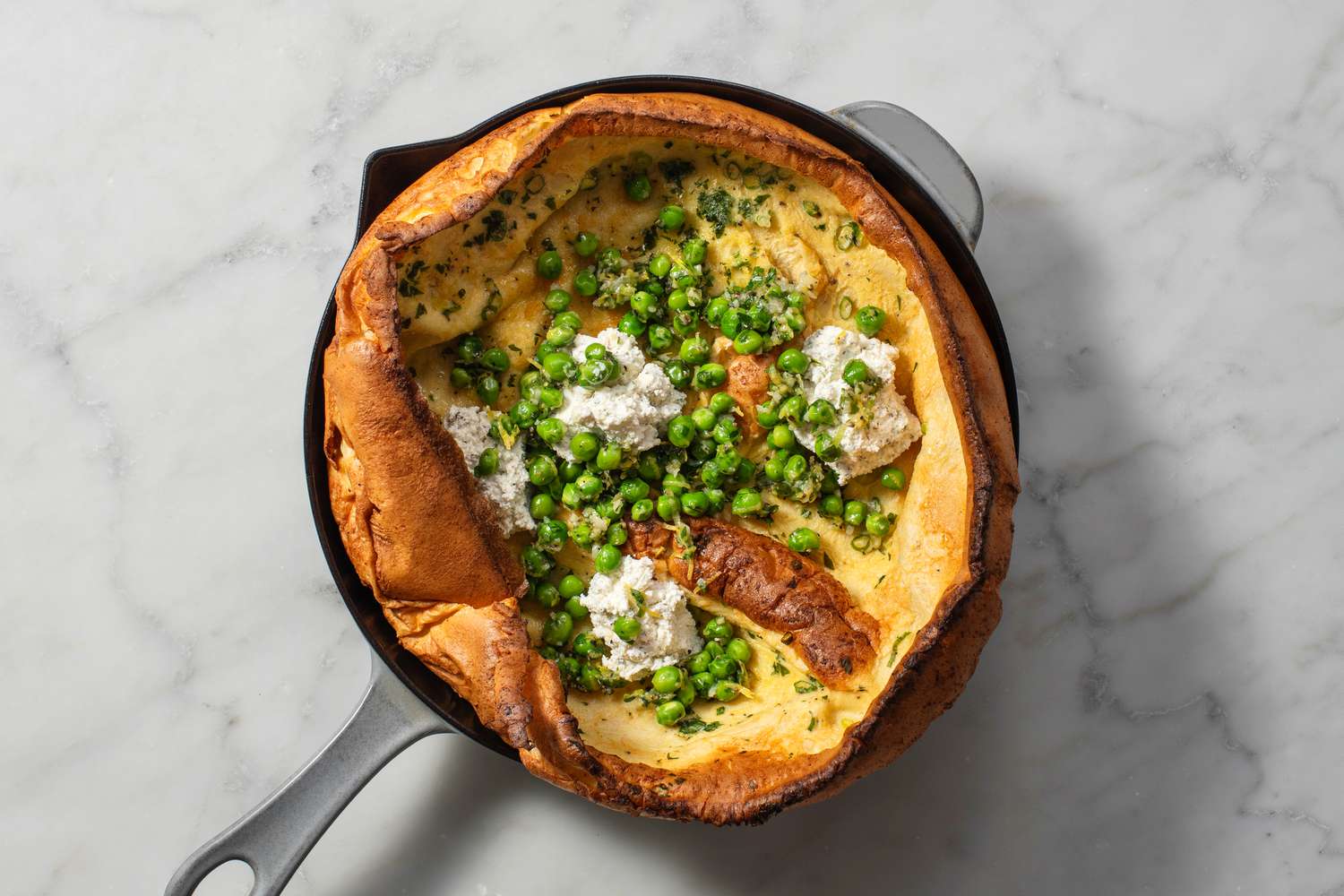
The Spruce Eats / Diana Chistruga
-
Garnish with more chopped parsley and pea shoots if desired. Serve immediately.
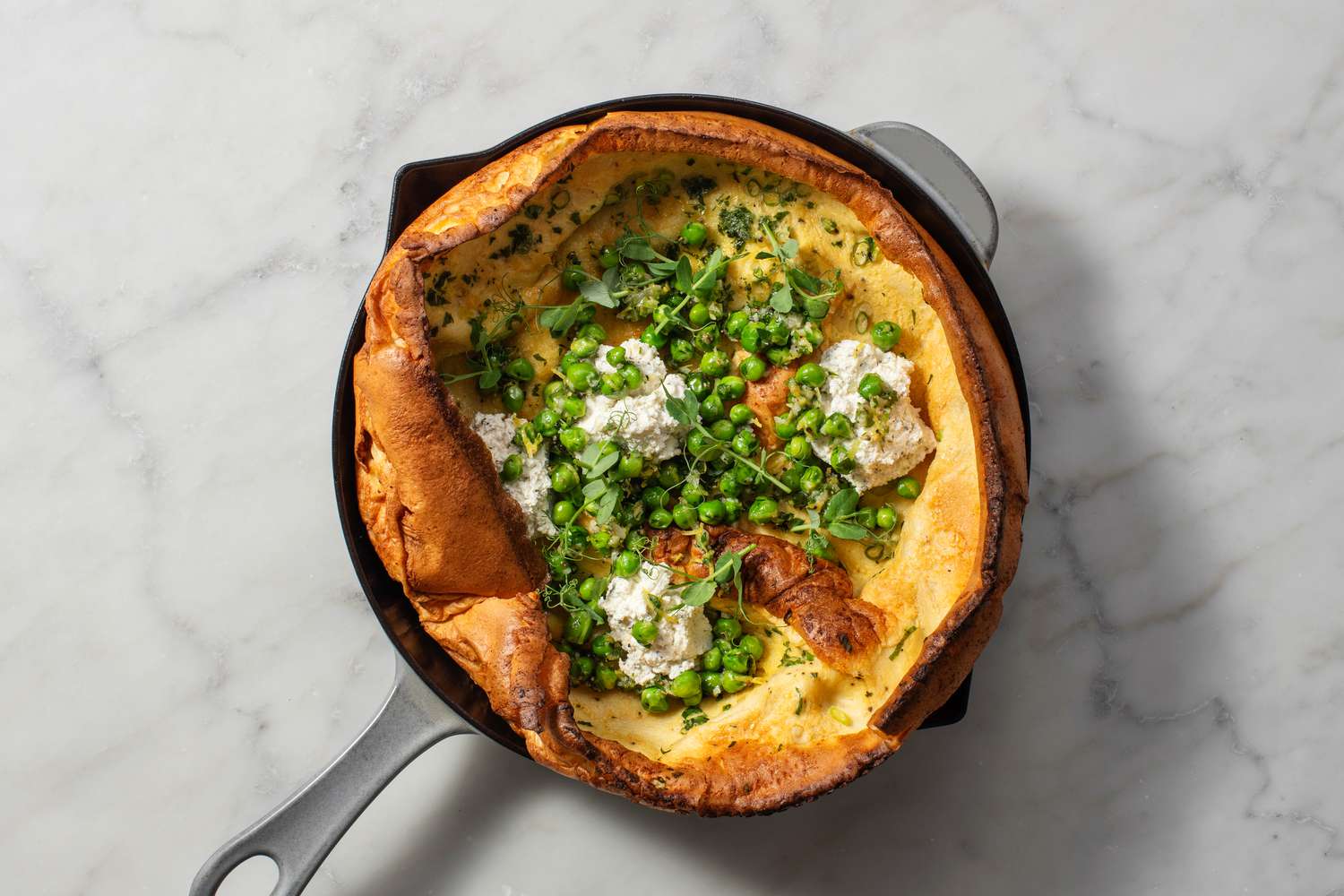
The Spruce Eats / Diana Chistruga
Variations
- Try adding a fried egg or some delicious cured meats like prosciutto on top.
- Use your favorite herbs instead of the parsley. Tarragon, thyme, and basil are all good options.
- Instead of Boursin, try another soft cheese like fresh goat cheese (chèvre), sheep’s milk cheese, or even crumbled feta. Feta will not be as rich and unctuous but it will be delicious.
- Instead of or in addition to the peas, top this Dutch baby with spring mix that has been lightly dressed in a tart lemony dressing.
How to Store
I highly recommend eating the Dutch baby the day of, but if you have leftovers you can save it in an airtight container in the fridge for up to 2 days. Reheat it in a toaster oven at 400 F.
